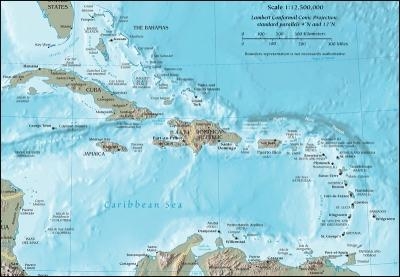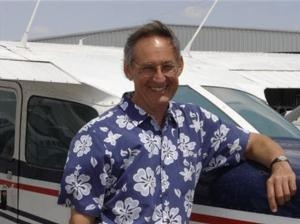And Air Traffic Control Fees Are Set To Increase Again, Advocate Says
The FAA has reportedly boosted the fees charged to GA pilots for the use of Air Traffic Control services for flights to Caribbean Islands, according to a news release from Caribbean Flying Adventures.

Jim Parker of Caribbean Flying Adventures said that a recent example was a $274 invoice for a trip from Miami to the Dominican Republic and back. "And these ATC fees are about to be increased again," Parker said.
According to Parker, the FAA collects millions of dollars from European trans-Atlantic flights to the Islands for ATC services. The U.S. controls most of the airspace between Miami and St Kitts. If you depart from a U.S. airport or land at a U.S. airport, fees do not apply.
But if you depart from a non-U.S. airport, in the Bahamas for example, and fly to a non-U.S. airport such as Turks and Caicos, fees apply. "FlightAware can track your flights but apparently the FAA cannot," Parker said.
"The FAA says they are unable to automatically determine that you departed Miami in the morning and made a technical fuel stop in the Bahamas enroute to the DR. So bingo, you receive a $274 invoice for ATC services even though you departed from a U.S. airport," Parker said. "Prior to the fee increases, a round trip in one month generated fees less than $250. FAA did not send out invoices for less than $250. Small private aircraft only received invoices when they made two round trips in a single month, which was an extremely rare occurrence."
Parker says that with the recent substantial fee increases, one low mileage round trip in one month is now generating invoices because the $250 threshold was not increased in parallel with the fee increase. Failure to increase the threshold level was clearly a bureaucratic oversight, in Parker's view, however, he says. the FAA is refusing to take administrative action well within their authority to increase the threshold level.

"Cancelling invoices which should never have been issued in the first place is now becoming a major burden for GA pilots and the FAA as well. Recently, Caribbean Flying Adventures helped many pilots reverse these charges," Parker (pictured) said. "However, those pilots who overnight in the Bahamas before flying to the Turks and Caicos or the Dominican Republic or further down the island chain are now stuck with what are essentially “new” ATC fees! Your little C172 is now paying the same fees as a B747 with 467 seats! Is that what congress really intended? Common sense would suggest 'no'."
Parker says he has been in touch with the FAA office responsible for these fees, but they are refusing to increase the threshold level, exposing potentially thousands of pilots to unwarranted user fees, most of which should not be charged in the first place because of technical, same-day fuel stops.
Caribbean Flying Adventures is asking for help to determine how many pilots have been hit with these new user fees. "If you have received an invoice from FAA Oklahoma City for ATC services in the Bahamas and Caribbean, send me copy so we can get a sense of how widespread this problem is. Do not pay. I will try and get the charges reversed," Parker said. "We can then approach our congressional representatives for a fix. Surely, our family owned four and six seat aircraft should not be paying the same fees as the jumbo jets coming from Europe."
 Aero-News: Quote of the Day (12.09.25)
Aero-News: Quote of the Day (12.09.25) ANN's Daily Aero-Term (12.09.25): High Speed Taxiway
ANN's Daily Aero-Term (12.09.25): High Speed Taxiway ANN's Daily Aero-Linx (12.09.25)
ANN's Daily Aero-Linx (12.09.25) NTSB Final Report: Diamond Aircraft Ind Inc DA20C1 (A1); Robinson Helicopter R44
NTSB Final Report: Diamond Aircraft Ind Inc DA20C1 (A1); Robinson Helicopter R44 ANN FAQ: Q&A 101
ANN FAQ: Q&A 101




